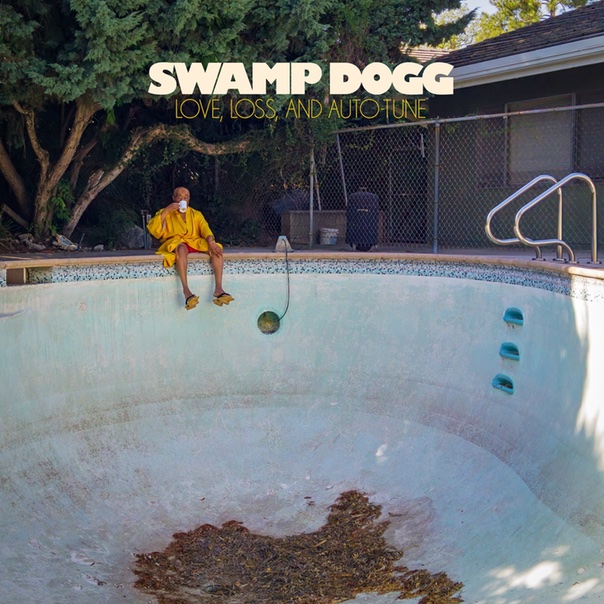ALBUM REVIEW: Swamp Dogg retakes the soul music vanguard with ‘Love, Loss, and Auto-Tune’
R&B’s ever-increasing popularity stems partly from the movement’s rejection of its past. The likes of Frank Ocean and Blood Orange have pushed far beyond what anyone could have expected during previous decades. Such generational disparities contextualize Jerry Williams, Jr.’s 22nd LP under his Swamp Dogg moniker.
Love, Loss, and Auto-Tune
Swamp Dogg
Sept. 7
With this latest album, Virginia soul mainstay connects the dots between his previous efforts and modern sonic developments. With Poliça’s forward-thinking producer Ryan Olson pulling strings behind the scenes, Love, Loss, and Auto-Tune reevaluates the sound of a 76-year-old maverick.
Swamp Dogg’s 1970 debut, Total Destruction to Your Mind, saw the end of Jerry Williams’ artistic compromises. His war against the status quo through tales of heartache, urban struggle and dark comedy reportedly landed him on Richard Nixon’s infamous Enemies List. Love, Loss, and Auto-Tune launches that genuine grit into the final frontier.
Opener “Answer Me, My Love” encapsulates Swamp Dogg’s thematic and musical statement, with lush orchestration and bombastic brass contrasting with glossy bass lines and inconspicuous modulations. “What sins have I been guilty of/ Tell me how I came to lose your love/ Please answer me, my love,” he sings as his booming voice acquires layer upon layer of vocal processing. Olson uses the song’s electro-acoustics to gradually morph Williams’ commanding alto into a synthetic astronaut, a turn for the avant-garde that “I’ll Pretend” embraces to a startling degree.
This lead single spotlights the Auto-Tune saturation for which this album is named. Dour drones and minimal ambience form the foundation of the song, with echoes of Guitar Shorty’s Southern blues lines sparsely annotating Olson’s stark soundscape. Williams’ lyrical confessions break through walls of dreary synth with choral-like vocoder harmonizations with none other than Bon Iver’s Justin Vernon, weaving a lovesick poem worthy of Tom Waits’ “Martha.” Mesmerizing futurism and emotional proximity make this the album’s most impactful and engrossing cut, but Williams and Olson’s vision remains compelling once the tempo picks up.
The old-fashioned warmth of three-count ballad “Lonely” reinstates Swamp Dogg’s songwriting chops. It’s clear that Jerry Williams, Jr. does not depend on his new backdrop, as his powerful melodies and true-to-life anecdotes return to the aura that made him such an irreplaceable force. The uptempo hustle-anthem “$$$ Huntin’” and the gleefully transgressive “Sex with Your Ex” join tradition with exploration using unfiltered lyricism as glue.
Williams spends half of the former cut talking about his desire for money and getting away from “counting my money in ounces and grams.” The song slowly builds to an impossibly infectious groove complete with synth bass right out of the Stevie Wonder handbook. Olson manages to revitalize his sonic stamp without losing the distinctly human touch. The clapped backbeat of the latter track sounds like it’s coming from Williams’ own hands as his vocoder flourishes fill in the gaps of an otherwise simple arrangement. This balance between grounded rhythm and far-out production elevates Love, Loss, and Auto-Tune out of the traps attempting a stylistic rebirth.
“If missing you was a crime, I know I’d get life,” Williams declares on electro-funk banger “I’m Coming With Lovin’ On My Mind.” Acrobatic synth bass and organ runs meld with vocal samples and a sticky electro-pop beat. The song’s final passage sees Olson erratically throw sounds into the mix, but never obscures the earnest yearning in Williams’ singing. This album’s production remains tasteful as its deeper cuts deliver zanier atmospheres.
“I Love Me More” raises the bar by punctuating a tough-as-nails trap beat with old-school orchestra hits, psychedelic drones and gospel-like fusion jazz modulations, but “She’s All Mind All Mind” goes completely off the rails. Olson and Williams enter Arca and Kirin J Callinan territory, siphoning sheets of saxophone notes and startling noise blasts into an industrial rhythm attack.
“Star Dust” closes the album with a celestial ballad of spellbinding string arrangements, and a much-appreciated dose of Swamp Dogg’s unfiltered voice. Euphonic textures still fluctuate into dissonant oddity, but Williams lassos Olson’s eccentric engineering with his heartfelt words and expressive singing range.
Love, Loss, and Auto-Tune succeeds because Swamp Dogg properly pursued the artistic potential of contemporary music, while Olson properly preserved Williams’ timeless sonic staple. Nearly six decades into his career, Swamp Dogg retakes the vanguard of the music he helped establish.
Follow editor Max Heilman at Twitter.com/madmaxx1995 and Instagram.com/maxlikessound.

